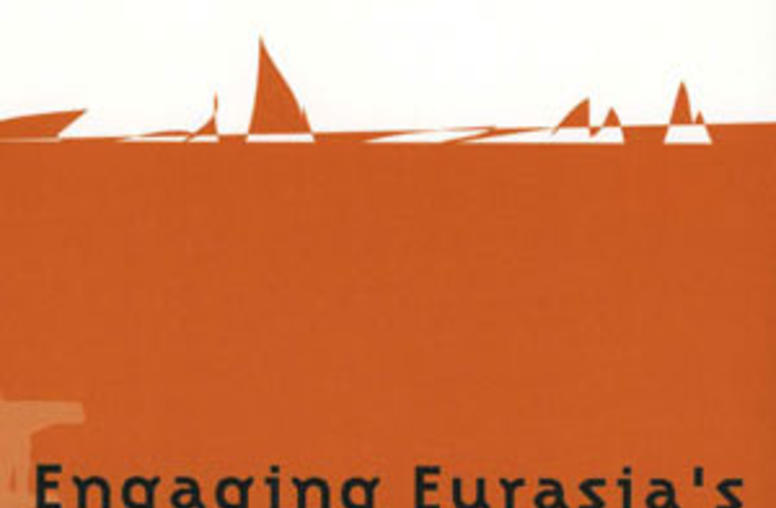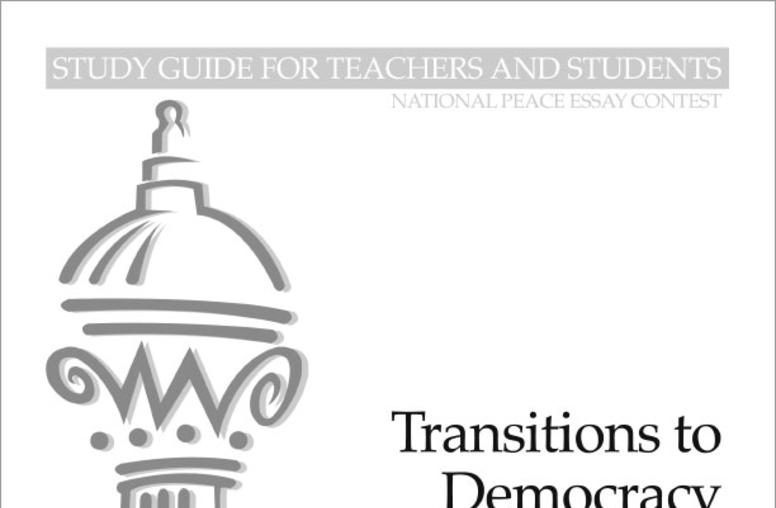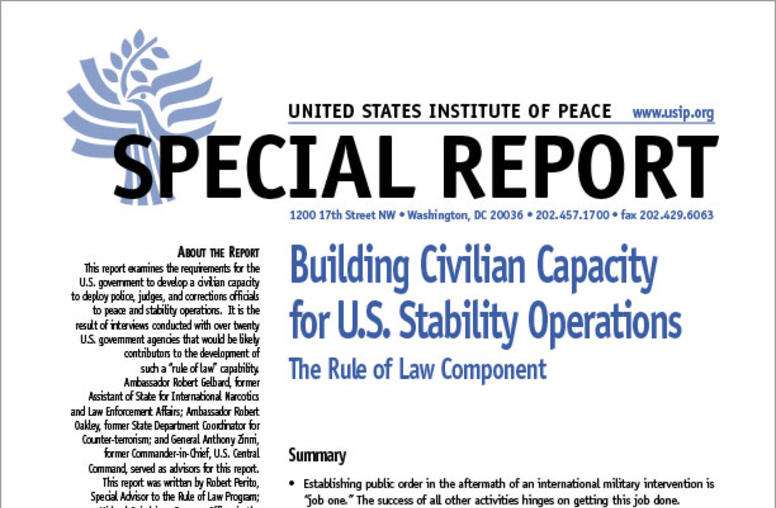Publications
Articles, publications, books, tools and multimedia features from the U.S. Institute of Peace provide the latest news, analysis, research findings, practitioner guides and reports, all related to the conflict zones and issues that are at the center of the Institute’s work to prevent and reduce violent conflict.
2003–2004 National Winner
Vivek Viswanathan Herricks High School New Hyde Park, New York Coordinator: Ms. Melissa Jacobs While the resolution of armed conflict may bring initial order within a war-torn nation, it does not guarantee long-term peace and stability. Establishing an orderly society from the ruins of war—enacting a workable political, economic, and social structure in a place where violence and instability have been the rule—is an undertaking that is necessarily complex. Moreover, the discontinuation of...

Engaging Eurasia's Separatist States
In the wake of the dissolution of the Soviet Union, secessionist forces carved four de facto states from parts of Moldova, Georgia, and Azerbaijan. Ten years on, those states are mired in uncertainty. Beset by internal problems, fearful of a return to the violence that spawned them, and isolated and unrecognized internationally, they survive behind cease–fire lines that have temporarily frozen but not resolved their conflicts with the metropolitan powers.

Transitions to Democracy
This guide from the 2004 National Peace Essay Contest assists teachers in increasing students' understanding of the nature of democracy and historic and contemporary efforts at democratization.
The Iraqi Shi'i Community: Between Sistani, Muqtada, the IGC, and the CPA
Congressional Testimony by Amatzia Baram, Senior Fellow, U.S. Institute of Peace.
Mosque and State: Religion and Politics in Iraq
A Special Discussion on Capitol Hill Sponsored by The Faith and Politics Institute and the United States Institute of Peace.
Kosovo: Status with Standards
On March 17-19, anti-Serb rioting by Albanians in Kosovo resulted in death and destruction. USIP considers what happened as well as why and how such events can be prevented in the future.

Building Civilian Capacity for U.S. Stability Operations: The Rule of Law Component
Establishing public order in the aftermath of an international military intervention is "job one." The success of all other activities hinges on getting this job done. Military combat units, however, are neither trained nor equipped for riot control and law enforcement functions. No rapidly deployable U.S. civilian capacity exists to provide the full spectrum of rule of law functions—from intelligence to incarceration—needed to support military forces engaged in peace and stability operations...
Genocide Convention at Fifty: Web Links
Below are links by topical categories to resources primarily in English providing information on genocide. Courts and Tribunals Genocide Studies/Projects Selected Documents and Decisions These links complement the Institute Special Report: The Genocide Convention at Fifty. Courts and Tribunals International Court of Justice (ICJ) Also known as the World Court, this site (in English and French) contains general infor...
Somalia: Ten Years Later
Years of negotiations marked by bickering among various Somali factions have produced little. Recently hope has emerged that an agreement to create a national Somali government might be in sight. What are the prospects for peace?
The Current Situation in Serbia and Montenegro
Congressional Testimony by Dan Serwer, director of the Balkans Initiative and Peace and Stability Operations.